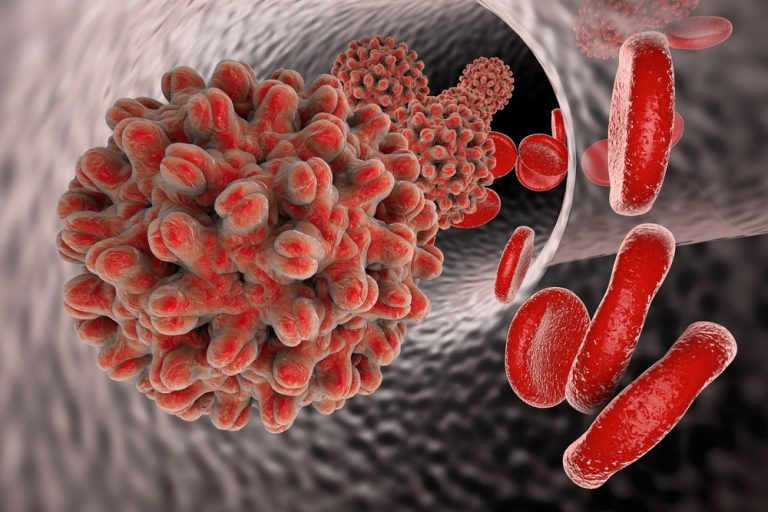
How Do You Get Hepatitis B?
Hepatitis B transmission is typically through bodily fluids. The virus enters the liver, begins to multiply and causes inflammation. HBV can transfer by:
- Mother to child—an expectant mother can transmit the virus to her child during delivery
- Accidental needle sticks—health care professionals are at risk if they come into contact with infected blood
- Sharing needles—HBV can be transmitted by syringes and needles during drug use
- Sexual contact—an infected person can transmit the virus to a partner through blood, saliva, semen or vaginal secretions
Hepatitis B Risk Factors
People who are at high risk should have test performed for HBV because the virus is highly communicable. According to the Center for Disease Control, two-thirds of people who are infected with HBV are unaware. Therefore, testing is essential for both diagnosis and preventing from spreading. You are at increased risk for hepatitis B if you:
- Have unprotected sex with more than one partner
- Have unprotected sex with someone who has HBV
- Share needles during IV drug use
- Have a job that exposes you to blood
- Share a home with someone infected with HBV
Tests to Diagnose Hepatitis B
If you have a high risk of coming into contact with HBV, your doctor may want to test you for HBV. A blood test can diagnose HBV. It can detect whether you have or have had HBV, you are immune to HBV or whether you can pass HBV to others.
Since it is often is not accompanied by symptoms, people who appear healthy should go have a test done for HBV. In addition to the high-risk individuals, these individuals should also be tested:
- Hemodialysis patients
- All pregnant women
- HIV-infected individuals
- Patients with abnormal liver laboratory results
- Patients who require immunosuppressive or cytotoxic therapy
Complications of Chronic Hepatitis B
Age of infection is a significant factor in whether hepatitis B develops into a chronic condition. If an infant has the infection, he or she has a 90 percent chance of developing chronic hepatitis B. Serious complications include:
- Cirrhosis—Inflammation from hepatitis B can lead to scarring of the liver and the liver’s inability to function correctly
- Liver cancer—chronic hepatitis B is the most common cause of liver cancer
- Liver failure—when the liver shuts down, a liver transplant is imperative
- Kidney problems—hepatitis B can cause kidney failure. Children are more likely to recover from kidney issues than adults.
- Hepatitis D infection—if you have chronic hepatitis B, you are at risk of developing hepatitis D. Only those infected with HBV are susceptible to hepatitis D.
If you have chronic hepatitis B, your doctor may want to do a liver biopsy. Using a small needle your doctor can remove a tiny piece of liver tissue. A liver biopsy helps determine whether there is damage to the liver and choose the best method of treatment.
Chronic Hepatitis B Treatment
While acute hepatitis B may not need any treatment, chronic hepatitis B may require:
- Antiviral medications—this medication will slow the virus’ ability to damage the liver
- Liver transplant—for severe liver damage, you may need a transplant
- Monitoring–your doctor will regularly monitor you for signs and laboratory evidence of liver disease progression
Hepatitis B Prevention
The best prevention for HBV is vaccination. All infants should have a hepatitis B vaccination at birth because of the serious complications that result from HBV in infancy. Two or three additional doses are over a 6 to 18-month period. Vaccination in adults is three doses over a six-month period.
There are also preventative treatments if you know you to hepatitis B (such as those who work in the health care profession). Within 24 hours of exposure, a doctor can administer a preventative treatment.

About Digestive Health Centers of Texas
The Digestive Health Centers of Texas have multiple medical offices conveniently located across DFW, including Dallas, Allen, Plano, Bedford, and North Richland Hills. Our GI doctors have earned a reputation for excellence in the field of digestive health. Whether you require routine gastrointestinal follow-ups, a diagnostic test, or specialized colon cancer treatment, our medical offices are equipped to address your gastro health needs including Hepatitis B and C . Schedule an appointment at a DFW location nearest to you today.
